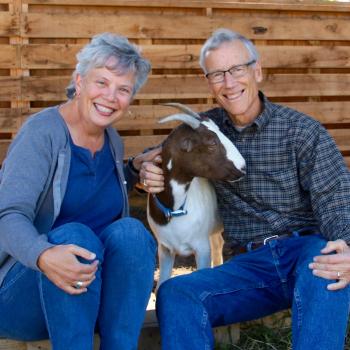Are you a member of Facebook? If you are, do you sometimes have doubts that social networking is as wonderful as many people seem to think? This article from the Atlantic Magazine raises questions that I’ve long felt at some level but never quite articulated: Is Facebook Making Us Lonely?
I think the most interesting parts of the article have to do with the increasing loneliness of American society:
Despite its deleterious effect on health, loneliness is one of the first things ordinary Americans spend their money achieving. With money, you flee the cramped city to a house in the suburbs or, if you can afford it, a McMansion in the exurbs, inevitably spending more time in your car. Loneliness is at the American core, a by-product of a long-standing national appetite for independence: The Pilgrims who left Europe willingly abandoned the bonds and strictures of a society that could not accept their right to be different. They did not seek out loneliness, but they accepted it as the price of their autonomy. The cowboys who set off to explore a seemingly endless frontier likewise traded away personal ties in favor of pride and self-respect….
JOHN CACIOPPO, THE director of the Center for Cognitive and Social Neuroscience at the University of Chicago, is the world’s leading expert on loneliness. In his landmark book, Loneliness, released in 2008, he revealed just how profoundly the epidemic of loneliness is affecting the basic functions of human physiology. He found higher levels of epinephrine, the stress hormone, in the morning urine of lonely people. Loneliness burrows deep: “When we drew blood from our older adults and analyzed their white cells,” he writes, “we found that loneliness somehow penetrated the deepest recesses of the cell to alter the way genes were being expressed.” Loneliness affects not only the brain, then, but the basic process of DNA transcription. When you are lonely, your whole body is lonely.
To Cacioppo, Internet communication allows only ersatz intimacy. “Forming connections with pets or online friends or even God is a noble attempt by an obligatorily gregarious creature to satisfy a compelling need,” he writes. “But surrogates can never make up completely for the absence of the real thing.” The “real thing” being actual people, in the flesh. When I speak to Cacioppo, he is refreshingly clear on what he sees as Facebook’s effect on society. Yes, he allows, some research has suggested that the greater the number of Facebook friends a person has, the less lonely she is. But he argues that the impression this creates can be misleading. “For the most part,” he says, “people are bringing their old friends, and feelings of loneliness or connectedness, to Facebook….”
“Facebook can be terrific, if we use it properly,” Cacioppo continues. “It’s like a car. You can drive it to pick up your friends. Or you can drive alone.” But hasn’t the car increased loneliness? If cars created the suburbs, surely they also created isolation. “That’s because of how we use cars,” Cacioppo replies. “How we use these technologies can lead to more integration, rather than more isolation.”
The problem, then, is that we invite loneliness, even though it makes us miserable. The history of our use of technology is a history of isolation desired and achieved. When the Great Atlantic and Pacific Tea Company opened its A&P stores, giving Americans self-service access to groceries, customers stopped having relationships with their grocers. When the telephone arrived, people stopped knocking on their neighbors’ doors. Social media bring this process to a much wider set of relationships.
I realize it’s ironic for me to be criticizing Facebook while writing on a digital platform that shares many similarities with it. I know I’m delighted when people form connections through the comments section of my blog, and I certainly disagree with Cacioppo’s blithe dismissal of religious belief. But I found myself thinking about this article long after I finished it. If you have an opinion on it, I’d love to hear it.











